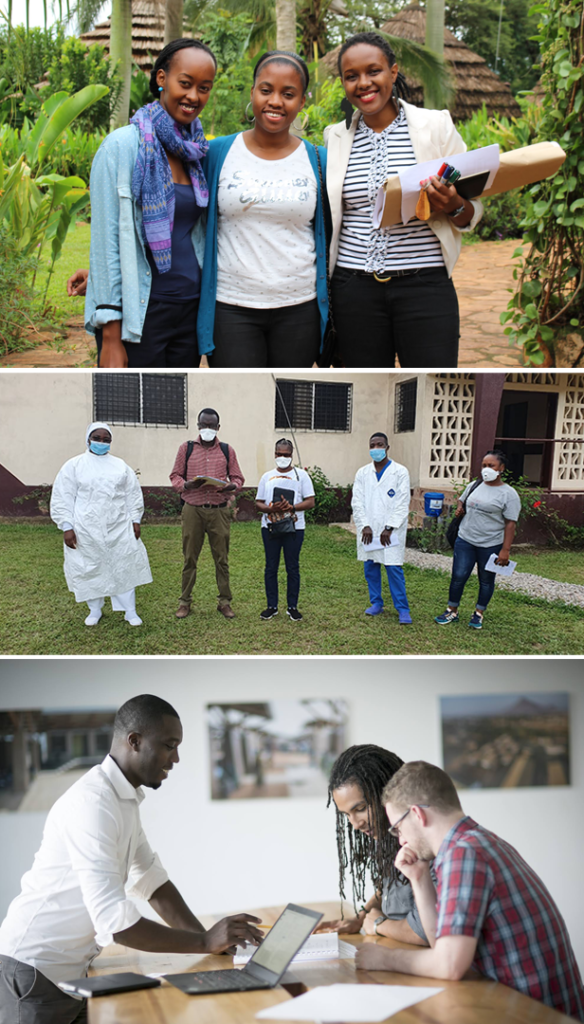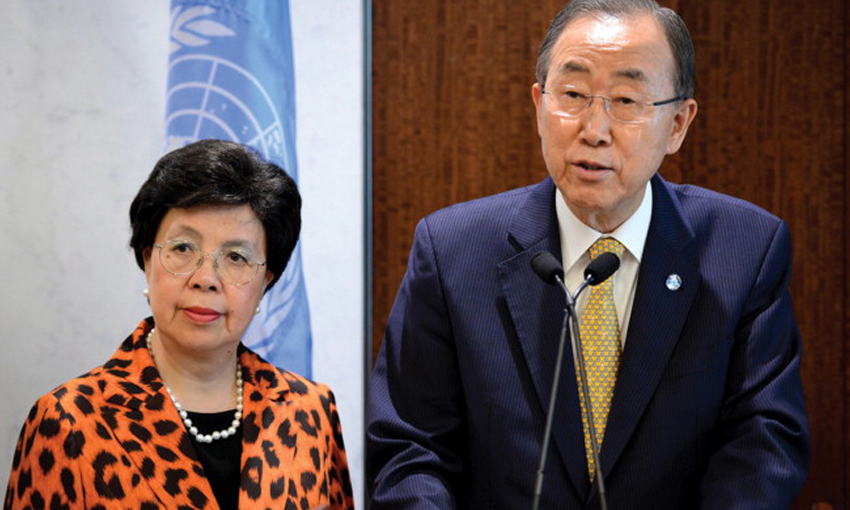Leadership is a powerful lever for change in global health.
The Challenge
Every year, millions of people suffer and die from preventable illnesses and injuries. During the pandemic, gaps in health systems exacerbated these inequities.
Who leaders are and how they lead is a matter of life-and-death for the communities they serve.
We need leaders with a range of skill sets and perspectives:
We need leaders with humility, empathy, flexibility, and adaptiveness.
We need proximate leaders with lived experience with inequities and the ability to collaborate across borders and boundaries.
We need leaders at all levels and aspects of health systems working together in relentless pursuit of health equity.
These kinds of leaders aren’t born. They’re developed intentionally through sustained support, training, mentorship, and access to resources and opportunities.


Systems leaders must be intentionally developed at every level of their careers through skill building, mentorship, reflection, and being part of a collaborative network. In global health, these kinds of intensive, sustained leadership development opportunities are few and far between. Investment in talent comprises a small percentage of the sector’s funding.
Global health leadership does not yet fully reflect the diversity of the communities it serves. Addressing this gap requires sustained leadership development throughout professionals’ careers, not just diversifying top leadership positions.
While many young professionals have bold visions, a deep understanding of their communities, lived experience with inequities, and strong technical expertise, their ability to make a meaningful impact hinges on intentional development of essential skills—such as managing funds, building and leading strong teams, and making strategic decisions that drive change.
In the wake of COVID-19, and as we face new health threats, a decade of progress in global health and development may be reversed. In global health, leaders at all levels face serious risk of burnout.
Robust leadership development opportunities that provide access to networks, resources, and mentorship are strong antidotes. Targeted investments can shore up adaptability, resilience, and other traits required to lead and manage through the ongoing crisis and recovery period. Research from the private sector underscores this. Research from the private sector underscores this. A MIT Sloan study, for example, found that “To become more resilient in the face of sudden change…it was just as important to improve the way people work and to update their skills as it was to introduce new technologies.”
Strengthening health systems is critical to sustaining better health outcomes for communities across the world. Yet systems don’t have agency, people do. An investment in the leaders who design and shape systems is an investment in systems change, which is by nature complex, long-term work.
Investing in global health leaders can accelerate systems change over time by ensuring implementers across organizations, not just top leadership, can engage through a systems lens. As a 2016 SSIR piece on systems change posits: “In addition to developing a systems mindset, it is important to strengthen people’s self-awareness and relationships, create space for dialogue and inquiry, ensure honest and transparent communication, and develop a shared understanding and practice of diversity, equity, and inclusion.” This requires dedicating resources to building authentic leaders and systems thinkers who can hone and practice these skills throughout their careers.

Global Health Now: This article outlines the immense financial and human costs of poor leadership in global health and the power of excellent leadership to ensure “long-term sustainable change to the health of numerous populations [because] they are able to work cohesively and respectfully with the communities they serve, to influence and empower others in their health vision and to be able to confidently navigate fluid political and organizational contexts.”

The Lancet: This commentary illustrates how the loss of thousands of lives to Ebola in West Africa in 2014 was the result of a global health leadership failure.

Devex: This op-ed by Skoll Foundation principals underscores the need for funders to shift their impact evaluation approaches given the nonlinear nature of systems change: “Not everything that counts can be counted, and not everything that can be counted counts…the collaboration and influence that resist quantification matter too.”

Bridgespan: This January 2021 report highlights how funders looking to advancing systems change must shift. The authors advocate for funders to invest in organizations and coalitions serving as “systems orchestrators” who do the critical, often under-recognized work of unleashing the power of collective leadership.

IREX: The Fellowships Alumni Network Study conducted in partnership with IREX and the W.K. Kellog Foundation, in which GHC staff participated, is a collaborative research initiative that brought over 20 partner organizations together to understand how fellowship programs can support their alumni to drive positive social change.

SSIR: This piece makes a compelling case for the need to develop leaders who enact an outsized impact on long-standing social inequities through a systems approach — building relationships based on deep listening and working through networks of trust and collaboration.

SSIR: A piece, co-authored by GHC’s Senior Director of Community Impact, Hannah Taylor, addresses how understanding the complexity and nuance of leadership in changing environments can help fuel system-level change.

Chronicle of Philanthropy: “In an unusual move, five of America’s wealthiest foundations have joined forces to do more to help grantees pay for rent, decent wages, technology, and other overhead.”

This initiative, of which GHC is a collaborator, is advancing a new approach focused on developing proximate leadership for better outcomes in global development.